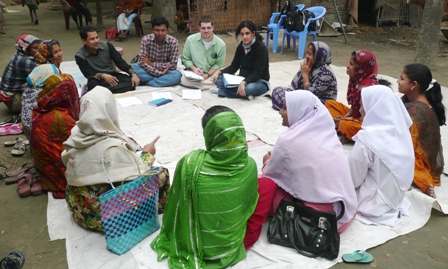Searching for sustainable hunger solutions in Bangladesh
By

Searching for sustainable hunger solutions in Bangladesh
By
Bangladesh has received more foreign aid money per capita than any other country in history. Even so, nearly half the population lives under the national poverty line. Because foreign aid hs become so plentiful, “it has completely undermined the initative… people are always waiting for others, the U.N. or a church group to come and fix it,” says Jim Whitton, Regional Director of The Hunger Project. Whitton adds that along side apathy, government corruption has contributed to the problem of hunger in Bangladesh.
The Hunger Project was founded by people trying to diagnose why there are so many people struggling with poverty despite the availability of resources. The organization aims a laser like focus on creating sustainable solutions to end hunger in developing nations.
Tuesday on Worldview, Dr. Badiul Majumdar, vice president and country director for The Hunger Project - Bangladesh, explains why poverty remains such a persistent problem in Bangladesh and what steps he is taking to elevate their social mindset.